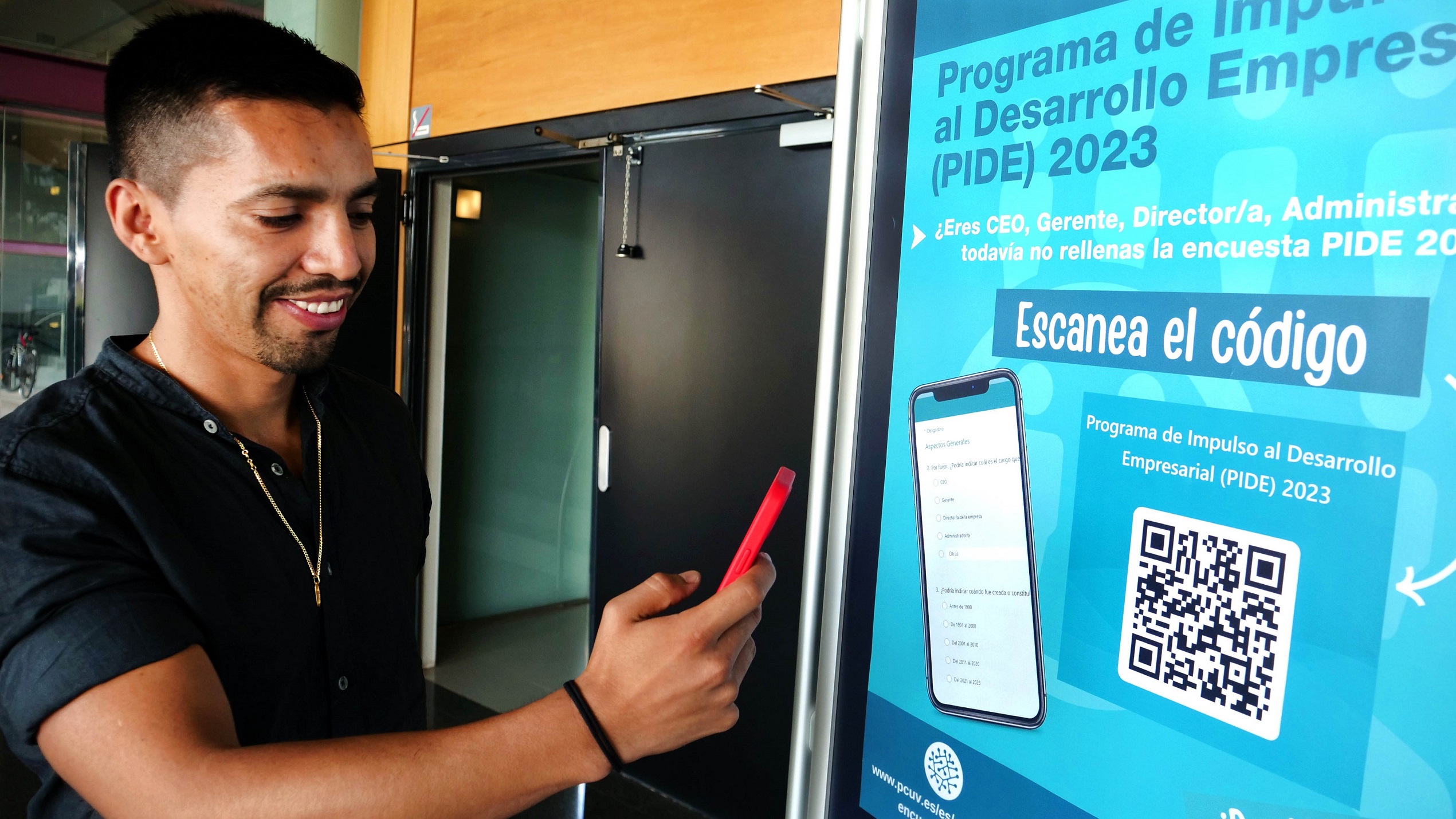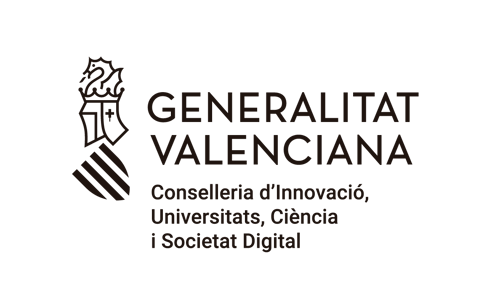60 of the entities housed in the business area of the University of Valencia Science Park have already participated in the eighth edition of the survey of the Business Development Promotion Program, which promotes the University of Valencia Science Park Foundation (FPCUV) to learn about the evolution and characteristics of companies and help improve their visibility and knowledge in the Valencian innovative environment
The University of Valencia Science Park (PCUV) has a very heterogeneous set of companies and entities housed there, but focused on a common goal, to bring innovation to society. Data collected by staff of the University of Valencia Science Park Fundation (FPCUV) in 2023 show that most of the companies housed in the PCUV are mainly engaged in five key sectors: "Research, development and innovation"; "Engineering, consulting and advisory"; "Food biotechnology"; "Medicine and health" and "Medical biotechnology". These areas of activity represent 69% of the total number of entities in the Science Park, as shown by the provisional results drawn from the answers received from sixty of the companies that make up the business area of the PCUV to the survey of the Business Development Promotion Program (PIDE), which remains open for those who have not yet been able to respond.
According to the National Classification of Economic Activities (CNAE), 48% of the companies correspond to the "Professional, scientific and technical activities" sector. With respect to the legal form, the Limited Liability Company (S.L.) is the most widespread, with 75%. As for the age of the companies, 6% of the entities have been housed in the Science Park before 2000, and 48% have started their activities between 2011 and 2020. The type of client to which they direct their products/services corresponds to the B2B sector, i.e., they dedicate their activity mainly to offering products/services to other companies and not directly to the end consumer. At the same time, 87% of the companies are not part of a business group; however, the minority of companies that are part of a business group are "Subsidiary Companies" (71%), many of which are multinational in nature (86%).
With respect to innovation, the companies housed in the PCUV carry out different types of innovation, with product innovation of goods or services being the most important (34%). Innovation is developed, in most cases, by employees of the company (43%), leaving a lower and distributed percentage for users, external agents and collaborations between companies. In terms of technology, the tool most used by companies is artificial intelligence (19%).
In 43% of the companies housed in the PCUV, innovation is developed by company employees, leaving a lower percentage distributed among users, external agents and inter-company collaborations
The majority of entrepreneurs state that their entities have not been providers of public procurement of innovation (94%). However, many of them have been beneficiaries of grants, subsidies or funding from local administrations (26%) and/or Central State Administration (24%) in the period 2020-2023. Collaboration between companies is important to meet R&D objectives, so they identify universities as their main collaborators (40%). In reference to intellectual and/or industrial property, 17 companies hold a total of 191 patents in the Science Park.
In terms of size by number of employees, 13 of the PCUV companies can be considered microenterprises, with less than ten employees. Likewise, 55 companies in the Science Park employ around 1,340 people, most of them trained in the Valencian Community and specifically at the University of Valencia (69%). As far as leadership is concerned, 20% of the PCUV companies are led by women. However, 89% of the companies apply policies of equality between men and women in their workforces.
Companies consider that universities have been their main collaborators (40%) in meeting R&D objectives
Considering the turnover criterion, which corresponds to the net amount of sales and services that the companies have obtained in the last period (year 2022), it is observed that 33% of them generate an average of between 100,000 and 500,000 euros, while 28% do not exceed 50,000 euros, which reflects that most of the companies housed in the PCUV correspond to a "small" size compared to large multinationals. From the results collected so far, it is also worth noting that most of the PCUV companies are self-financed (59%) and are not beneficiaries of external investment. Despite this, 78% of business leaders are optimistic about future results and believe that they will grow and perform better in the new period of 2023.
Regarding the sales and/or services provided by the PCUV companies in the 2022 period, most of them were made in Spain and/or in European Union countries (66%). Regarding the type of accommodation, 61% of the companies are installed in offices, offices and laboratories of the PCUV, 15% in business incubators (coworking spaces of the Science Park), 15% have accommodation or virtual office and 9% are in the business incubator of the PCUV. In general terms, the companies share a positive assessment of the PCUV and its facilities, with an outstanding average score of 4.2 out of 5.
87% of the companies housed in the PCUV do not form part of a business group, however, the minority percentage that do comply with this scheme occupy a "Subsidiary Company" role (71%), many of them being multinational in nature (86%)
With the support of




%20ingl%C3%A9s.png?width=1000&height=563&name=_Cartela%20Resultados%20de%20Preguntas%20(PIDE%202023)%20ingl%C3%A9s.png)
